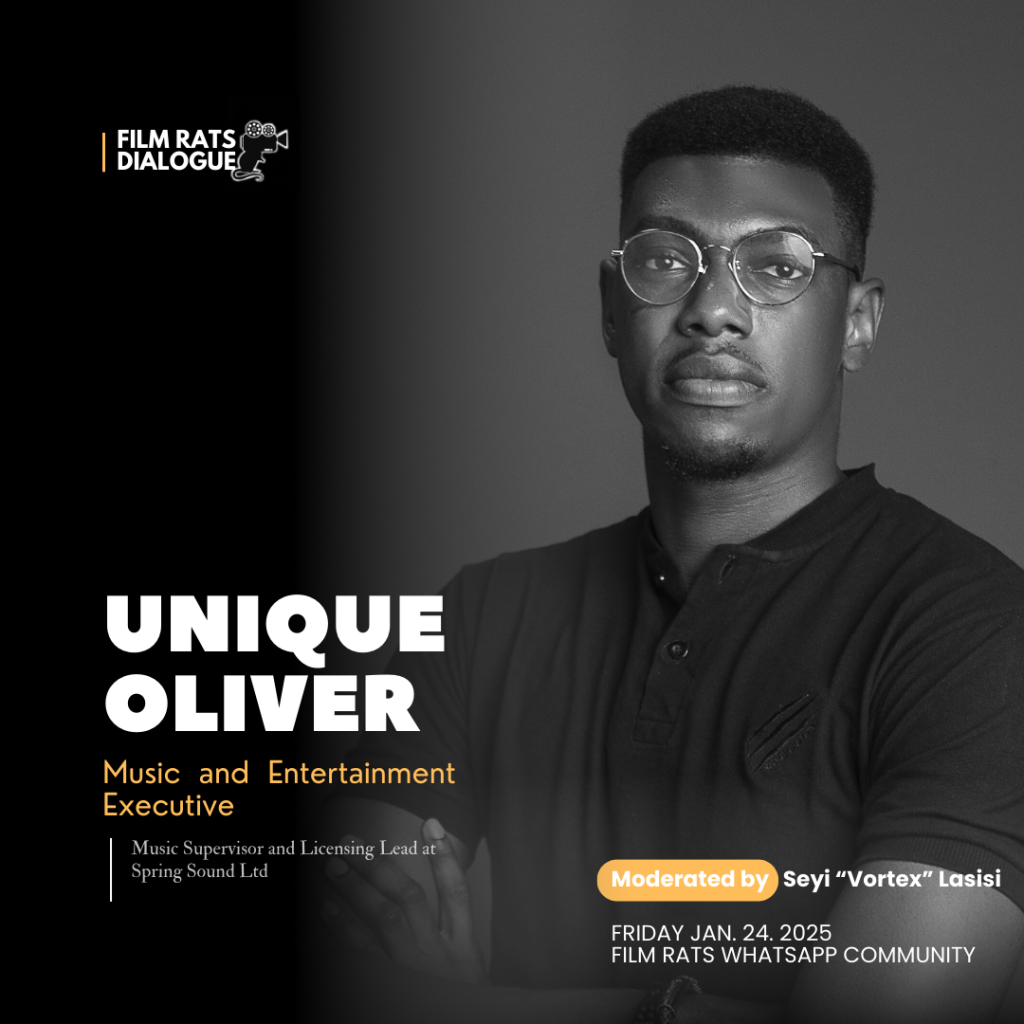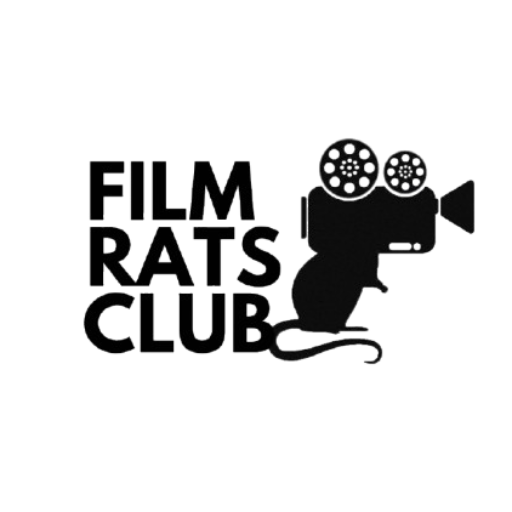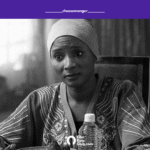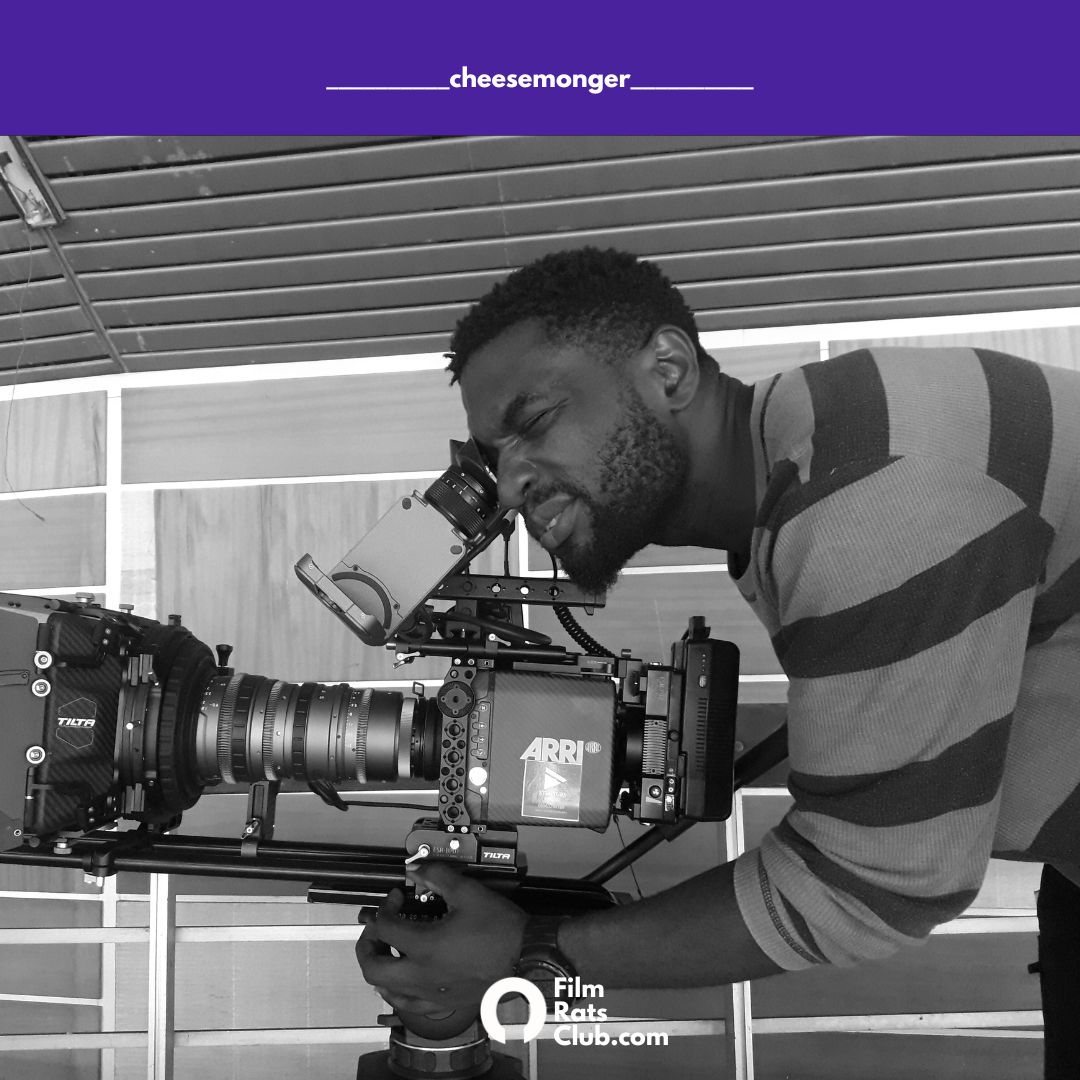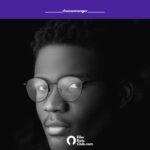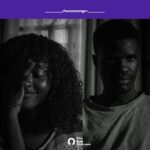If it’s not too late, happy new cinematic year. This is the year where we watch more films, make more film-related strides, and importantly hold more conversations around the art and business of filmmaking. In keeping with the Film Rats Club’s longstanding commitment to curating meaningful conversations about Nigerian and global cinema, we launched the Dialogue Series within the Film Rats community. Our first guest of the year is none other than a fellow Rat, Unique Oliver.
Oliver has a unique portfolio as a lawyer turned Music and Entertainment Executive serving as the Music Supervisor and Licensing Lead at Spring Sound Ltd. Here he leads the company’s Music Supervision and Licensing division, delivering tailored music solutions for Film, TV, Reality Shows, Games, and New Media projects.
Over his career as Nollywood & Afrobeats Go-to Music Supervisor, he has successfully negotiated and delivered on high-profile projects including Amazon Original Christmas in Lagos, Amazon’s TV reality series Ebuka Turns Up, Africa, Adire, The Uprising: Wives On Strike, and more. Outside the film industry, he has licensed music from Afrobeats superstars like Davido, Rema, Flavour, Omah Lay, Femi Kuti, Adekunle Gold, Ayra Starr, and other A-list artists.
In this conversation, moderated by Seyi Lasisi with contributions from fellow club members, we explored the art and business of sound, Unique Oliver’s observations on the industry, and his recommendations for its growth.
For those who don’t know you, can you describe yourself and what you do?
For a one-liner, I’m a music supervisor and licensing specialist for media (film, TV, games etc). With an interesting background in the music industry and as a music creative. My hustle simply involves making the best music available for a typical media or film project. I love everything that interacts with music. Whether it’s film, games, mobile applications, advert, etc. just use music, and let’s talk about money. My typical day will be with a glass of water on my laptop and researching the best Afrobeats song that can meet my client’s budget.
You casually described your daily routine already. But, how much music do you listen to and how does this inform your work?
I can’t really count because it’s not just random listening on a music streaming app even though I do this when I’m looking for a specific vibe to use. For me, it can be listening to my neighbor’s playlist in the morning, to swiping Instagram stories in the afternoon, surfing TikTok in the evening to capture trending music, then hitting the gym at night to study people’s music playlists or just hearing the DJ to Shazam those songs that give that “you know” vibe.
What has this hunt(permit me to call it that) taught you about the listening palate of Nigerians especially as it relates to your line of work?
Not all Afrobeats songs are about money, drugs, women, and body parts. It’s just your POV as a listener.
Interesting. How handy is this information in making informed decisions while dealing with a filmmaker?
It’s very handy for us because we are always limited by budget and have to find the next available song that can work for the scene. When we receive the scripts we study the setting of the movie in terms of location, year/era, major characters, and what will be the typical soundtrack for these characters based on their role in the movie so we can always suggest options when the filmmaker most preferred option is above budget.
Filmmaking isn’t just about action and visual storytelling. As someone who has observed the listening habits of Nigerians, what and where is the place of sound design and score in pushing storytelling? And if you are doing a deep scrutiny of our auditory storytelling, how will you discuss it within the context of Nigerian films?
I see music and score as the continuation from where the dialogue stops. When you give the audience something they can relate to, you feel it, they feel it and we all love it.
Well, you think of the city with the brown roofs you are thinking of Ebenezer Obey songs, you are thinking of the trenches you are thinking of a song by Small Doctor and the likes, if you think of a male character from the south-south part of Nigeria you are thinking of Timi Dakolo “Men of South” song. It’s all about creating a sonic identity that the audience with the background information can relate to and the ones without the information can learn something new about it. It’s entertainment but it’s also an education of the existing culture and listening habits of the biggest black country in the world.
Not to place you on the spot. But, as an expert in this field, which films or series will you recommend for someone interested in learning auditory storytelling?
Lol. You’ve put me on the spot already. Not sure I can recommend the perfect film or series that captures the role of music in relation to auditory storytelling but if there’s anything I’ve enjoyed lately is reality shows and the intentionality in regards to the use of music, it’s as if the characters stop talking and it’s the music talking. Someone screams “I’m so rich” and what plays next is a song saying “I’m rich “. It’s so beautiful to watch.
What do you think are the challenges attached to your part of the film industry? And, what recommendations will you prescribe?
Improper licensing practices. The assumption the artist has told you to use the song for free doesn’t mean you can use the song just like that. Some producers and songwriters have to approve before you can use the music.
Also filmmakers not understanding that music isn’t tomatoes that you can price anyhow. The deal is to work with the music that fits your budget, not your taste.
I think this response circles back to a recurring theme in some of your responses: the need for education. Or, what do you think?
Education is really necessary, there are a lot of fake assumptions. We keep doing it in our little way to ensure the industry is aware of best practices.
What’s the ideal time to bring you on board for a film project?
Well, the development or pre-production stage works best for us because there’s enough time to read the scripts and flag music usage that may not align with the budget available for example if the character is singing “I’m unavailable, them no Dey see me” and I know the budget for the music can never afford a Davido sing, we are quick to flag it before going to principal photography.
Most filmmakers prefer post-production after picture lock when they have sorted everything budget-wise and creative-wise but this can be limiting in so many ways particularly what we call “temp love” which is a situation where the filmmaker or director is so in love with the usage of a particular song that he is heartbroken when replaced for something less exciting because of budget restraint or approvals not gotten from the licensors. You start fixing everything post from pre-production, music inclusive.
Why do you think filmmakers will not want to consult you from inception? What are your theories?
I believe it’s based on the assumption that music should come after picture lock and we won’t be doing anything based on the assumption that our role is just to license music and that’s all but how role is everything music from onboarding composers, to working with the editors to create temp music playlist, working with legal for music contracts, to facilitating onscreen performance for scenes involving on camera Music usage for example concert scene.
What are certain industry practices that Nollywood filmmakers are now embracing? What more should they embrace?
Well, utilizing the services of a music supervisor for a start, insisting on paperwork and not just paying and getting receipts, exploring other music options aside from the use of original music.
It’s normal for filmmakers to always explore original music like getting people in the studio to compose music for the film to save costs, sometimes using a music library can be way cheaper instead of composing the original music.
If original music is to be used, there must be paperwork, and a proposer contract confirming the ownership and the usage of the song for the movie.
The fact you paid doesn’t mean you own it entirely. A music supervisor makes these business conversations smooth and easy leaving the filmmaker to focus more on the creative output because the music business language is very different from the film business language and practices.
I’m curious about your journey as a music supervisor, especially its origin. Do you mind sharing?
I’ve always been a music creative right from an early age, studied law at university, and proceeded to build work experience in music companies and labels. I worked in the licensing department at Mavin Records before moving fully into Music Supervision for film. I believe my flare for boring admin stuff, and background in law and the music industry made it easy to navigate the use of music and the best way to explore it for film projects.
When I saw On Becoming A Guinea Fowl, there were a couple of Nigerian songs in it, one by the Lijadu sisters and another by Omah Lay. About the Lijadu sisters, how easy is it to license these songs, especially old ones, as an Indie Nigerian filmmaker?
It depends on how realistic the budget is, if the budget is right you will get the song to use but as an indie filmmaker it’s always best to utilize options available within your budget framework. Old songs are licensable as long as there’s a good budget available but there are some of the old guys administrators that are actually calm and willing to work with your budget.
What would be the range for a “good budget” in this case?
It depends on who is administering the catalog. I’d have to check the backend to confirm who is administering it. The standard range can go as high as $8000 and as low as $1000 but an important factor will be the usage and if the administrator is a Nigerian or an abroad company.
What will be your advice for young indie filmmakers?
Well, in regards to music. Embrace collaborations and know there’s always that music track for every budget type.
